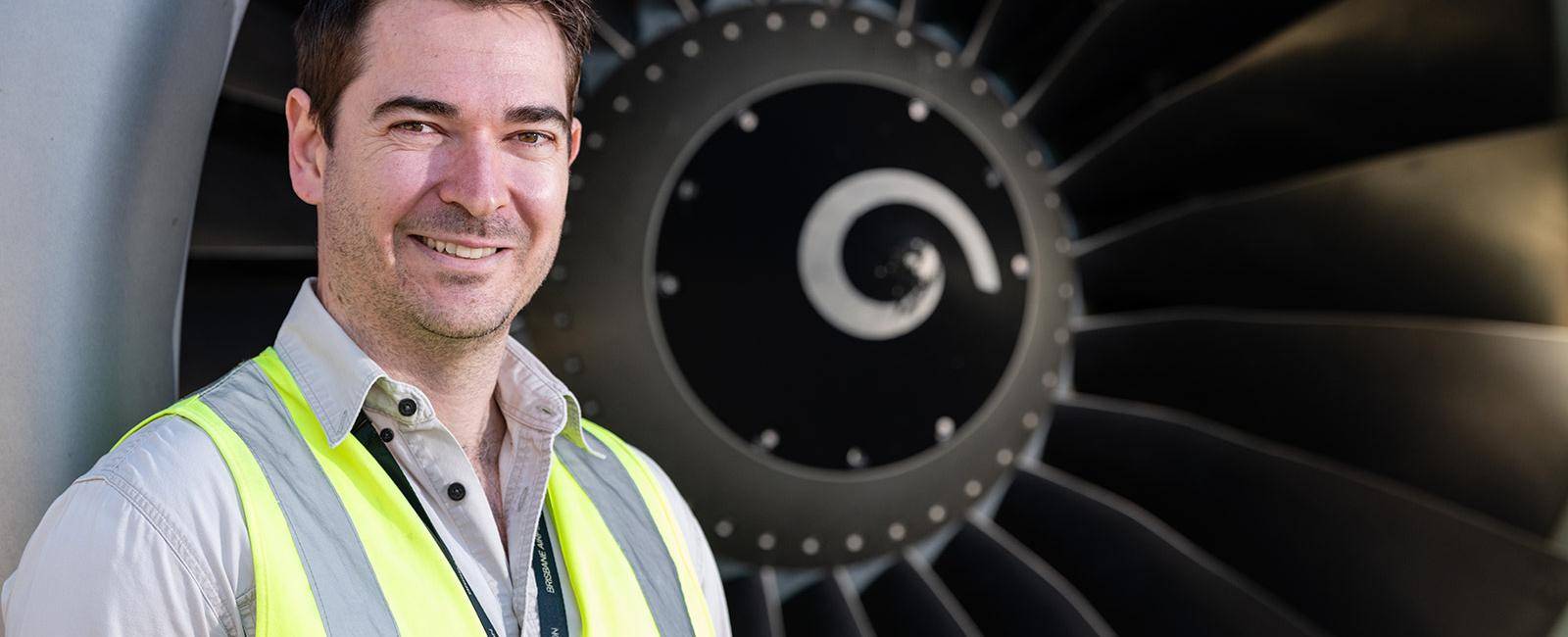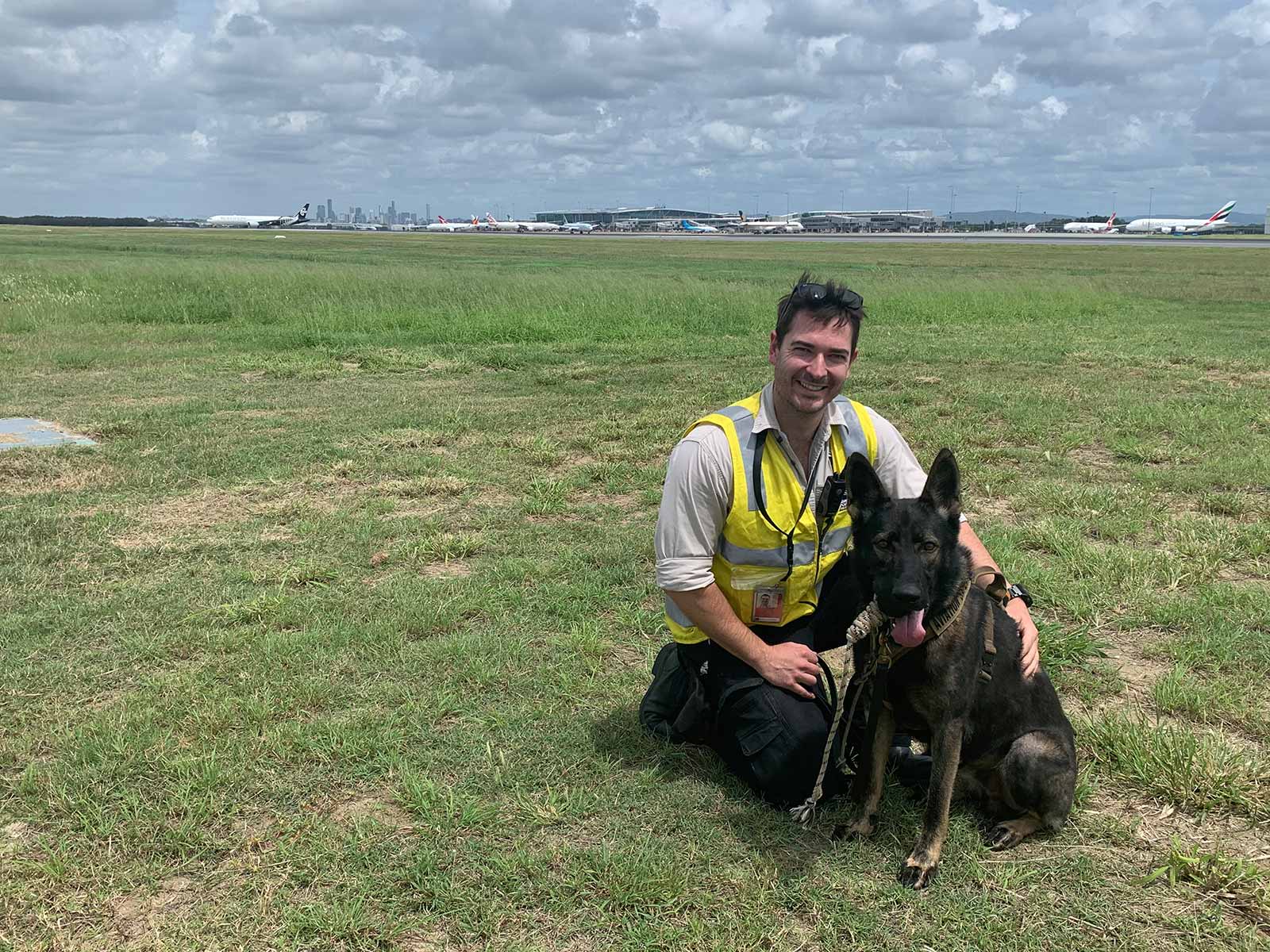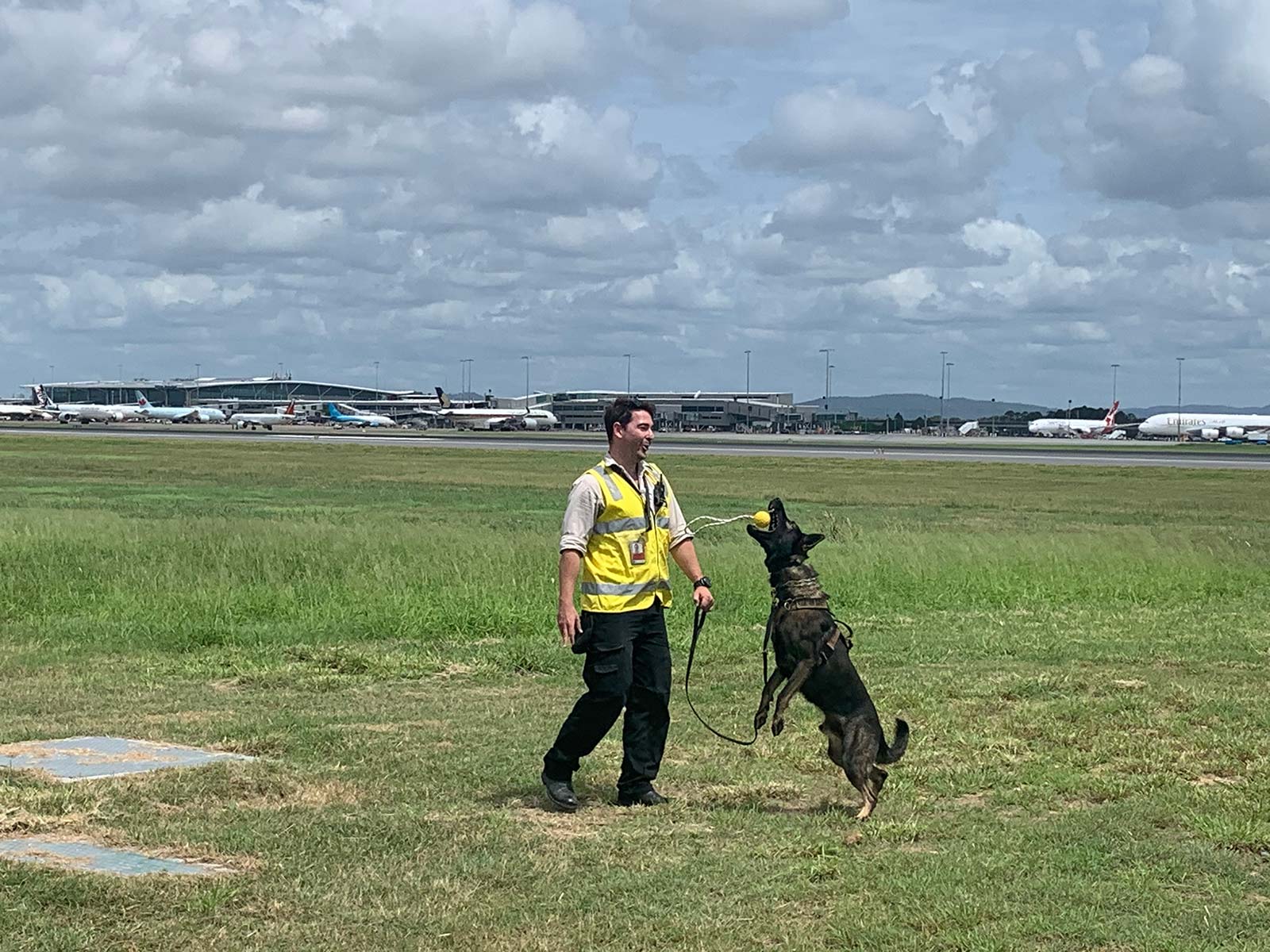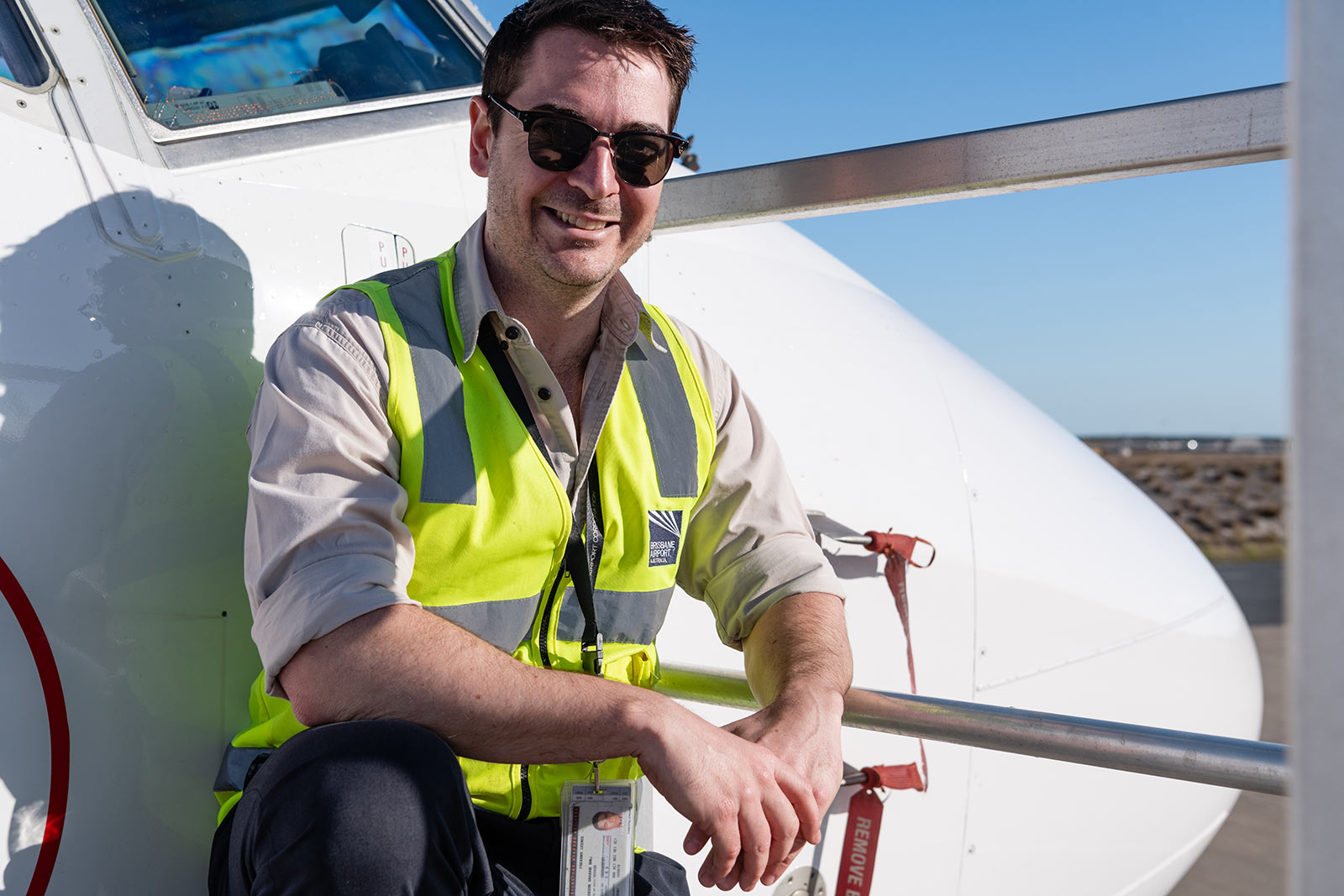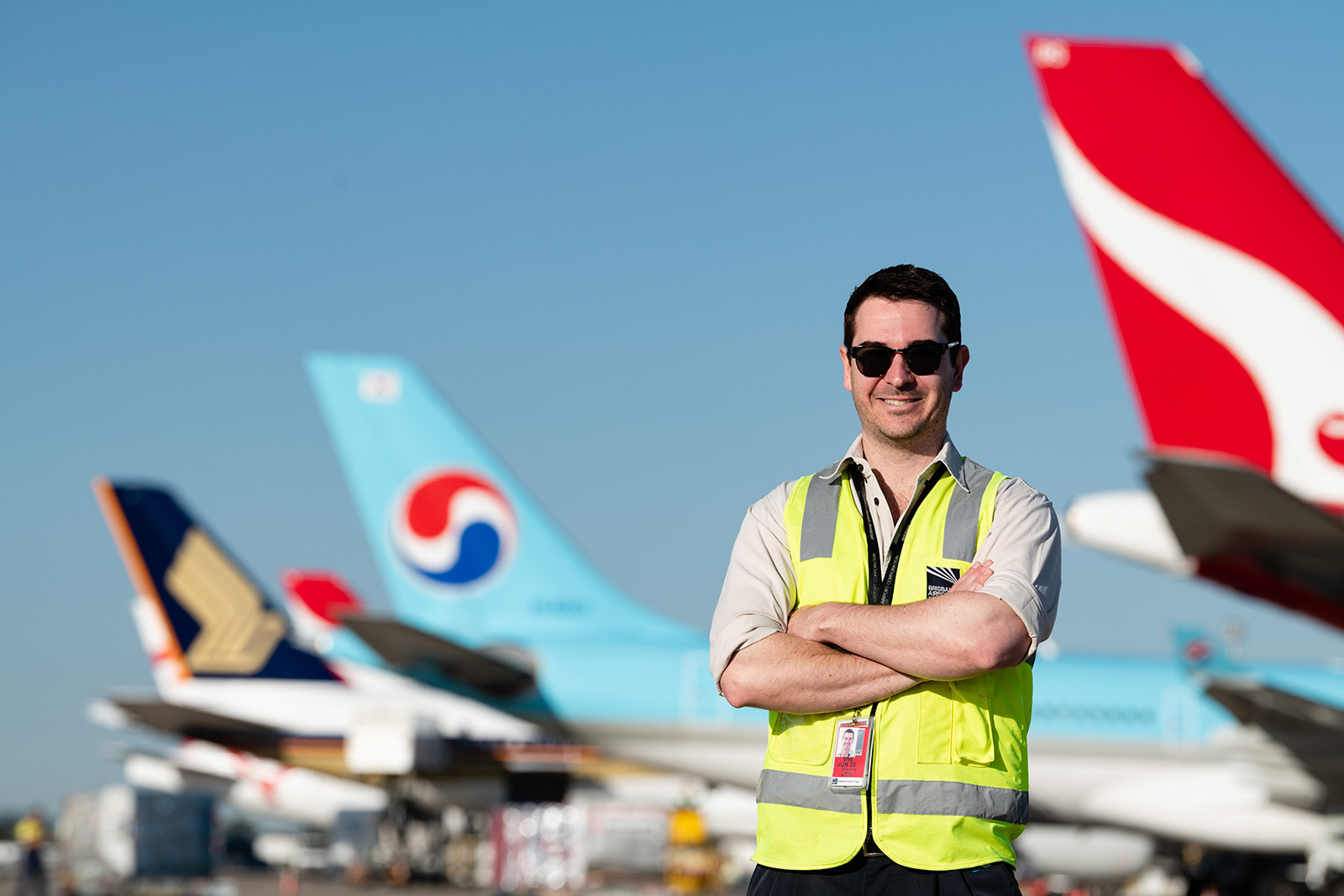
Never work with children or animals.
It is a well-known adage that most people swear by, but not Jackson Ring. As Brisbane Airport Corporation’s Wildlife Management & Planning Coordinator, being exposed to and working with animals comes with the territory.
Having grown up in areas of northern Queensland including Weipa and Mackay, Jackson has always had a passion for wildlife. It was the reason he entered the aviation industry straight after finishing school. He worked within Airside Operations at Mackay Airport for six years before making the move to Brisbane Airport (BNE).
“What originally appealed to me (working at an airport) was the challenging and unique work environment, but these days I find it rewarding being part of a team where what we do day to day helps passengers fly in and out of BNE safely, allowing travellers to go off on adventures, business trips or come home to loved ones.”
In his eight years working at Brisbane Airport, he has seen it all. Plovers, kestrels, hares, flying foxes, snakes, every breed of glorious bin chicken imaginable… you name it, and he’s probably seen it.
There is a lot of mystery surrounding Jackson’s role. In fact, each time someone outside of the Operations team speaks to him, they discover something new. The one thing that is common knowledge across the board is that Jackson has the best work mate possible. Hands down. One hundred per cent.
Meet Ozzie the German Shepherd. He is 19 months old, loves balls, and despises birds. Having failed to make the grade as a police dog with the Queensland Police Service, Ozzie has found a new home at Brisbane Airport where he works alongside Jackson to keep birds off the airfield.
Jackson has long been an advocate for trailing the use of canines at BNE to reduce the risks associated with wildlife, so it is no surprise to learn that he is leading the program and takes full responsibility for Ozzie outside of work too.
“Ozzie is a lover, not a fighter, and he is a joy to be around because he is such a fast learner and he has no off-switch.”
While confirmed wildlife strike occurrences are extremely low - accounting for around 0.00059 per cent of aircraft movements at Brisbane Airport - Jackson understands that some species of birds habituate to deterrence tactics.
“The canine program complements the existing and passive management strategies already implemented at Brisbane Airport to reduce the frequency and severity of wildlife strikes.
“The real difference here is that Ozzie is a true predator, not a perceived threat like a number of our other strategies, so it eliminates the problems of habituation. It also aligns with our commitment to implementing non-lethal forms of wildlife management.”
Ozzie lives with Jackson and has built a close bond with his handler. It makes sense when you consider their commonalities. They both want to be active and get things done, they both enjoy having fun (Jackson is renowned for nerf guns and practical jokes), and more importantly, they both never do anything by halves.
This go-getter attitude is what makes the current situation impacting Brisbane Airport, and the world as a whole, more challenging for the duo. The novel coronavirus pandemic (COVID-19) has crippled the aviation industry, with airlines around the globe grounding their fleets due to border closures and government-imposed travel restrictions.
“It’s definitely a lot quieter and I’m still getting used to seeing the large number of aircraft parked up when I get to work. Not having as many aircraft movements has made it easier for us to complete certain tasks but seeing aircraft full of excited passengers, lots of radio chatter and operating on a busy airfield is something I’m very eager to get back to.”
In normal circumstances, the Operations team works closely with a range of agencies and departments in their day-to-day work. For Jackson, working closely with universities, the Australian Museum, airlines, and government agencies is all part of successful dynamic risk modelling for wildlife at Brisbane Airport. COVID-19 has seen the implementation of strict social distancing measures, meaning Jackson and his colleagues have needed to change the way they work.
“One of the more interesting changes has been the implementation of social distancing measures at work and coordinating with workmates, contractors and stakeholders virtually. Adapting to this has been a unique experience.
"Ozzie is still struggling to adhere to social distancing rules - I don’t think he’ll ever grasp the concept.
“There’s lots I miss! But what I miss the most is seeing and interacting with stakeholders, my workmates and friends like we used to. Every Friday morning for the past four years some workmates from Airservices, Qantas, BAC, RFDS and I have had breakfast before starting work and we’ve never missed a Friday Breaky until recently. I can’t wait to get back to doing these sorts of things again.”
There is no doubt this pandemic has challenged everyone in our community, changing the way we live at work and at home. The beauty of Jackson’s mentality and attitude is that he can always see a silver lining. The coffee loving biscuit fiend is a strong believer in being willing and able to adapt to change.
“It’s definitely been challenging at times, but my focus has been on keeping active where I can and being there for friends and family.”
Asking Jackson what the most important thing he has learned working on precinct throughout the COVID-19 pandemic, he responds in true Jackson style:
“Life is better when my neighbour’s children aren’t home… also, Carol Baskin did it…
“But seriously, the biggest thing for me is learning the importance of having a good support network to help in tough times and the ability to adapt to changing circumstances. Without this, it would be easy to feel defeated.”
CREDITS

